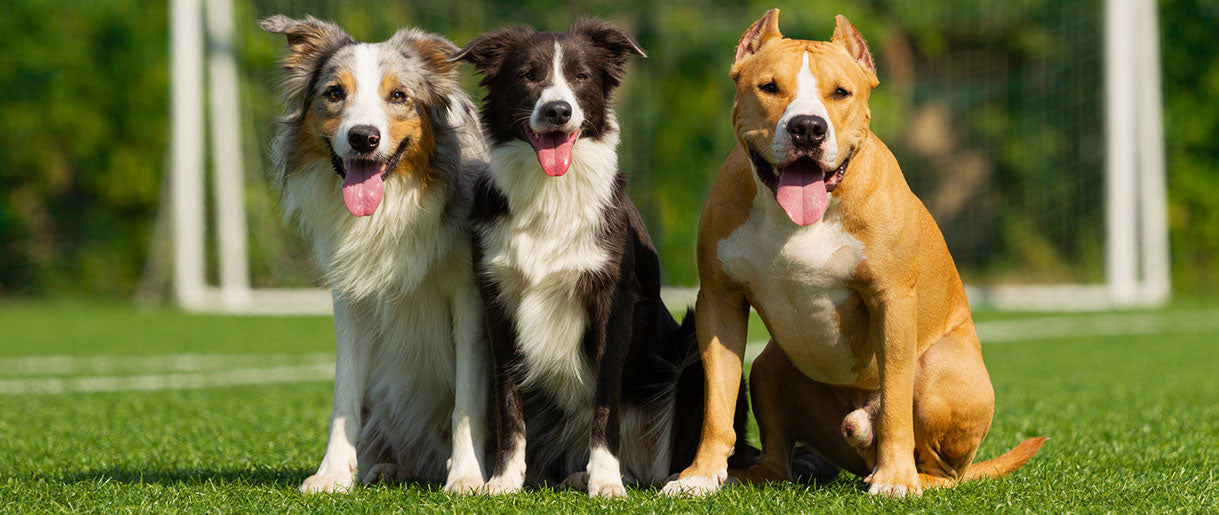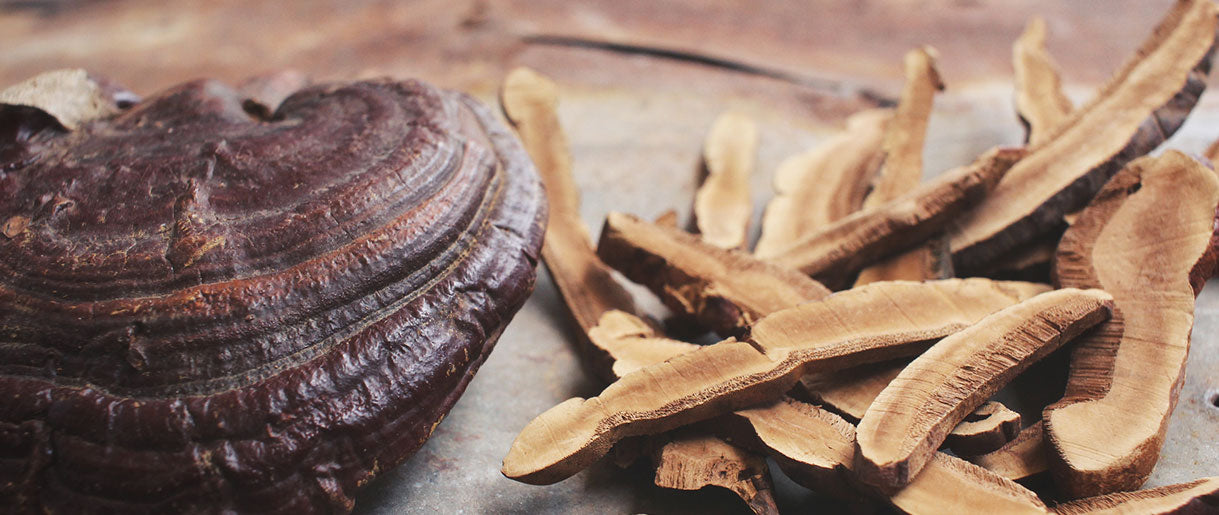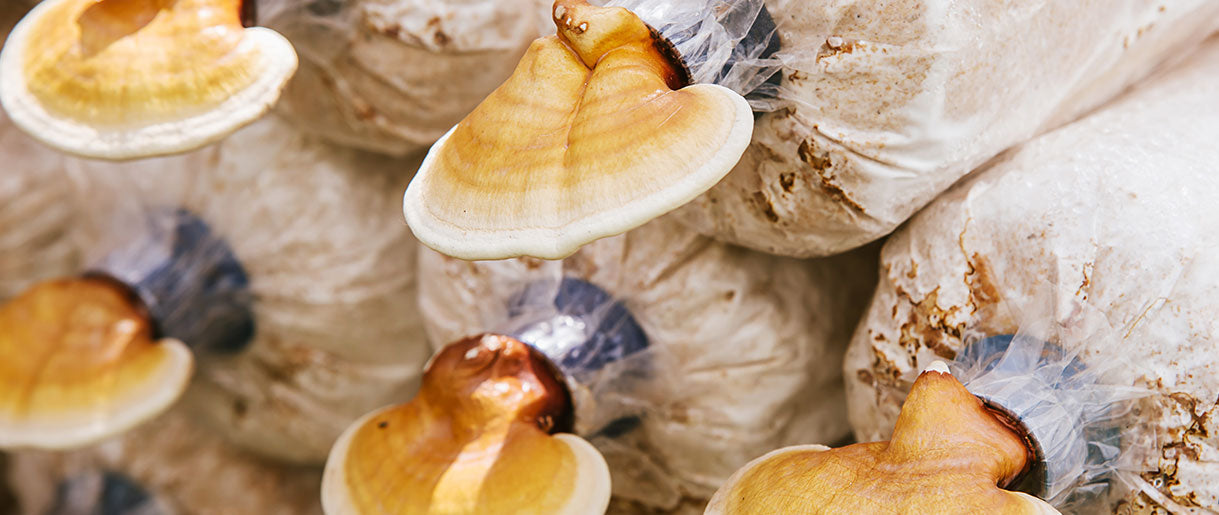Reishi Mushrooms, often regarded as a superfood, have a range of potential benefits for dogs. They are known to bolster the immune system, thanks to their high antioxidant content, and may help in the fight against cancer due to their anti-tumor properties. Reishi mushrooms can also offer anti-inflammatory benefits, potentially beneficial for dogs with allergies or arthritis. Moreover, they may support liver health.
With a growing trend towards holistic and natural remedies for health concerns, it's no surprise that pet owners are exploring such options for their furry friends. This exploration has led many to the reishi mushroom, a well-known and respected medicinal mushroom with a history of use in traditional Asian medicine. Reishi mushrooms offer potential benefits that could complement the health and well-being of your pet in surprising ways.
This comprehensive guide aims to delve deeper into the benefits of reishi mushrooms for dogs. We will explore the science behind it and how to introduce this potent superfood into your dog's diet safely.
Understanding Canine Nutrition: The Building Blocks of Health

Regarding maintaining your canine companion's health, nutrition plays a crucial role. A balanced diet is essential for every dog as it supplies the nutrients needed to support a healthy immune system, promote cardiovascular health, and maintain a healthy liver. It is also responsible for providing energy, promoting growth and development, and slowing aging.
However, dogs' nutritional needs can be complex and vary depending on age, breed, size, and overall health status. Their diet should include a balanced mix of proteins, fats, carbohydrates, vitamins, and minerals.
Complementing Your Dog's Diet: The Role of Supplements
Adding supplements to your dog's diet can help fill any nutritional gaps. These can be particularly useful for dogs with specific health conditions, seniors, or those following a homemade diet where certain nutrients might be lacking.
One such category of supplements gaining attention in canine nutrition is medicinal mushrooms. They are credited for supporting immune health and boasting a range of health benefits due to their high nutrient density and unique compounds.
Mushrooms and Dogs: A Natural Combination
Mushrooms have been part of the canine diet for thousands of years, given that dogs in the wild often eat a wide variety of plant material, including mushrooms. However, it's important to note that not all mushrooms are created equal. Some can be harmful or even deadly for dogs, while others, like reishi mushrooms, can offer potential health benefits.
The Ancient Miracle: Unveiling the History of Reishi Mushroom

The Reishi mushroom, known as Ganoderma lucidum, is a fungus revered in Asian countries for centuries due to its potential health benefits. It is also known as the "mushroom of immortality," highlighting its value in traditional medicine.
Reishi mushrooms have been used as a herbal remedy for various ailments, from high blood pressure to asthma and ulcers. Reishi's ability to improve sleep also made it an effective treatment for insomnia. Today, people across the globe combine reishi mushrooms with modern medicines and dietary supplements to enhance overall health and wellness, including in our four-legged companions, thus the rising interest in dog reishi mushrooms.
Unleashing the Health Potentials of Reishi Mushroom
Reishi mushrooms have generally been recognized for their ability to bolster the immune system. They contain compounds like beta-glucans and complex sugars that may help stimulate the body's immune response.
Further, they have gained recognition for their potential role in cancer treatment. Certain substances found in reishi mushroom may help prevent the formation and growth of cancer cells. Some studies suggest that Reishi treats cancer by slowing tumor growth, improving the efficacy of chemotherapy treatment, and helping to prevent secondary cancers.
Along with turkey tail mushroom, another well-known medicinal fungus, reishi mushroom is being studied extensively for its potential to treat cancer. This has led to the production of various products like reishi mushroom extract that make it easier to incorporate these mushrooms into daily life.
Beyond cancer, reishi mushrooms have shown potential for managing blood sugar levels, making them an area of interest for those with diabetes. Some research suggests that Reishi treats diabetes by promoting better blood sugar control.
Reishi Mushroom: A Nutritional Powerhouse
The nutritional profile of reishi mushrooms is impressive. They are low in calories and offer a good amount of fiber. The mushrooms contain several types of antioxidants that can help protect the body cells from damage, which supports overall health.
In addition, reishi mushroom extract is often used in supplements for its concentrated form of beneficial compounds, making it a popular choice among those seeking to optimize their health, including the health of their pets.
So, when discussing real mushrooms offering genuine health benefits, the reishi mushroom certainly tops the list. Its extensive potential benefits and rich nutritional profile make it a promising addition to a health-conscious lifestyle and your dog's diet.
Bridging the Connection: Reishi Mushrooms and Canine Health

In pet health, the Reishi mushroom, or Ganoderma lucidum, known as Ling Zhi in Chinese, is increasingly making its mark. Various studies are beginning to highlight the many benefits of these mushrooms for our canine companions. Let's explore the science behind using reishi mushrooms for dogs and how these powerful fungi can support your dog's health.
A Closer Look: Health Benefits of Reishi Mushroom for Dogs
Boosting the Immune System
One of the most significant benefits of reishi mushrooms for dogs is their support for the immune system. The complex sugars known as beta-glucans found in reishi mushrooms can stimulate the activity of white blood cells, which play a critical role in the dog's immune system. This enhances the body's ability to fight off several different diseases.
The Anti-Cancer Power of Reishi
Reishi mushrooms also have potential anti-cancer properties. They can inhibit cancer growth and stimulate the body to shrink tumors by limiting the blood supply to the tumor, known as anti-angiogenesis. This ability to restrict the growth of new blood vessels needed by the tumor could potentially slow or stop the development of cancer cells.
Supporting Liver Health
The liver cells of dogs can also benefit from the intake of reishi mushrooms. There are indications that reishi mushrooms may have a protective effect against liver damage and could potentially slow the progression of liver fibrosis. While more research is needed, early findings and anecdotal evidence are promising.
Alleviating Inflammation and Allergies
Reishi mushrooms have anti-inflammatory properties that can provide relief from allergies. They can help modulate an overactive immune response, which often causes allergies, potentially reducing allergic reactions in dogs.
Reishi Mushrooms and Dogs: Supporting Studies and Research
Several studies suggest that applying reishi mushrooms as a traditional treatment for humans can translate to positive effects in dogs. For instance, a study found that(1)reishi mushrooms, specifically Ling Zhi, could protect against cognitive decline in dogs.
The evidence also includes the mushroom's anti-clotting effects. A study found that(2)consuming reishi mushrooms lowers the risk of forming dangerous blood clots, making it an exciting area for future research.
While more studies are necessary to fully understand the extent of the effects of reishi mushrooms on dogs, the existing research and anecdotal reports make a compelling case for the potential benefits of these mushrooms on a dog's health.
Step with Caution: Safety Precautions When Using Reishi Mushrooms

Before introducing reishi mushrooms into your dog's diet, it's crucial to consider some safety precautions. Although generally safe, reishi mushrooms could trigger allergy symptoms in some dogs. Therefore, monitoring your pet for any adverse allergic reactions is advisable when introducing this supplement.
Additionally, reishi mushrooms may lower blood pressure, so caution should be exercised if your dog is already on blood pressure medication. Lastly, because reishi mushrooms boost the dog's immune system, they might overstimulate it in dogs with autoimmune diseases.
Thus, consulting a veterinarian is always a wise step before adding reishi mushrooms to your dog's diet. This can help you avoid the side effects of mushroom supplements.
Pinpointing the Perfect Dose: Determining the Right Dosage
The proper dosage of reishi mushrooms for your dog depends on various factors, including size, age, and overall health status. As a general guideline, a standard recommendation is to give 100mg of reishi mushroom per 10 pounds of your dog's weight. However, always consult your veterinarian to determine the most suitable dosage for your pet.
Choosing the Suitable Form: Different Forms of Reishi Mushrooms
Reishi mushrooms are available in several forms that can be incorporated into your dog's diet. The most common forms include:
- Powder: This can be mixed directly into your dog's food and is a simple way to incorporate it into their meals.
- Capsules: These are often more convenient but must be given like a pill, which can be challenging for some dogs.
- Extracts: This liquid form can be mixed into food or water and may be more palatable for some dogs.
Regardless of the form, choose a high-quality product safe for canine consumption.
Integrating the Superfood: Practical Ways of Incorporating Reishi Mushrooms in Their Meals
Introducing reishi mushrooms into your dog's diet can be a straightforward process. If using powder or extract, you can mix it directly into your dog's regular meals. This approach often helps mask any flavor your dog might find off-putting.
For dogs that are picky eaters, you might consider mixing the reishi mushroom powder with a bit of wet food or a treat to make it more appealing. If using capsules, they can be hidden in treats or soft food.
Remember, introducing reishi mushrooms should be a gradual process. Start with a smaller dose and closely monitor your dog for any changes or adverse reactions.
FAQs About Reishi Mushroom for Dogs
Can All Dogs Take Reishi Mushrooms?
In general, reishi mushrooms are considered safe and beneficial for most dogs. They have been known to support the immune system, promote cardiovascular and liver health, and have potential anti-cancer properties. However, there are certain situations where caution is needed.
- Allergic reactions: Some dogs may have an allergic reaction to reishi mushrooms. If you're introducing reishi mushrooms to your dog's diet, starting with a small dose and monitoring for any signs of an allergic reaction is essential.
- Dogs with autoimmune diseases: Reishi mushrooms stimulate the immune system, so they might not be suitable for dogs with autoimmune diseases where the immune system is already overactive.
- Dogs on blood thinners or with low blood pressure: Reishi mushrooms can thin the blood and lower blood pressure. So they might not be suitable for dogs already on blood thinners or with low blood pressure.
- Pregnant or lactating dogs: There is insufficient research on the effects of reishi mushrooms on pregnant or lactating dogs, so it's advisable to avoid using them in these situations.
- Puppies: While generally safe, the dosage and effects of reishi mushrooms on puppies are not as well-studied as in adult dogs. Therefore, consult with a vet before giving reishi mushrooms to a puppy.
Before introducing reishi mushrooms or any other supplement into your dog's diet, it is always best to consult a veterinarian to ensure it is a safe and beneficial addition. It's also crucial to only use high-quality products intended for canine use to ensure safety and efficacy.
How Long Does It Take To See Improvements After Using Reishi Mushroom For Dogs?
The timeline for improvements after introducing reishi mushrooms into your dog's diet can vary greatly depending on the dog's overall health status, age, size, and the specific health issue you hope to address.
For general wellness and immune support, you might observe subtle changes like better energy levels, healthier skin, and coat, or improved appetite and digestion within a few weeks of regular supplementation.
Improvements may take a bit longer to become noticeable for more specific issues like cancer support, liver health, or inflammation. It could take several weeks to a few months to see significant changes. For instance, in cancer cases, the progression of the disease might slow down, or you might notice an improvement in your dog's vitality and quality of life.
Can Reishi Mushrooms Replace My Dog's Medication?
Like other dietary supplements, Reishi mushrooms can provide various health benefits and support your dog's overall well-being. However, they are not a substitute for prescribed medications or professional veterinary care.
Reishi mushrooms have demonstrated promising results in supporting the immune system, promoting liver health, and displaying potential anti-cancer properties. Yet, they do not have the same precise, targeted effects as most medications. For instance, if your dog has a bacterial infection, reishi mushrooms will not replace the need for antibiotics.
Furthermore, while reishi mushrooms may assist in managing conditions like inflammation, cancer, or liver disease, they should not be used as the primary treatment method for these or other serious health concerns without proper consultation with a veterinarian.
Key Takeaways
Reishi mushrooms offer a wealth of potential benefits for our canine companions. From bolstering the immune system, assisting with cardiovascular and liver health, and exhibiting potential anti-cancer properties, these medicinal mushrooms are a natural supplement for your dog's diet. Incorporating reishi mushrooms into your pet's regimen could potentially enhance their well-being and quality of life.
However, as with any supplement, it's essential to tread with caution. Not every dog may react to reishi mushrooms in the same way. Potential allergies, interactions with existing medications, and suitability for dogs with certain health conditions are all aspects that warrant consideration.
Therefore, we cannot stress enough the importance of consulting with your vet before introducing reishi mushrooms, or any new supplement, into your dog's diet. Your vet's knowledge of your dog's health history and specific needs will be invaluable in determining if reishi mushrooms could be a beneficial addition to their wellness routine.
Have you tried giving your dog reishi mushrooms, or are you considering it? We'd love to hear from you. Share your experiences, questions, or concerns in the comments below. Let's build a community where we can learn from each other and together enhance the health of our beloved furry friends.
References
- Polysaccharides from Ganoderma lucidum Promote Cognitive Function and Neural Progenitor Proliferation in Mouse Model of Alzheimer's Disease, (1)https://pubmed.ncbi.nlm.nih.gov/28076758/
- Studies on screening, isolation and purification of a fibrinolytic protease from an isolate (VK12) of Ganoderma lucidum and evaluation of its antithrombotic activity, (2)https://pubmed.ncbi.nlm.nih.gov/21788727/










Let Us Know Your Comments